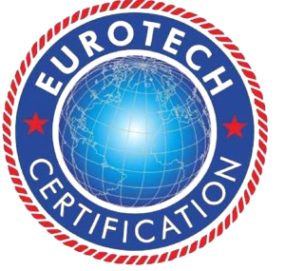What is Halal Certification?
Halal certification is a process that ensures products and services intended for the Muslim population meet the requirements of Islamic law (Shariah). This certification is crucial for food products, cosmetics, pharmaceuticals, and other consumables to be deemed permissible (halal) for Muslims. The certification process involves stringent adherence to Islamic dietary laws, ethical guidelines, and hygienic standards.
#### Key Features of Halal Certification
1. **Compliance with Islamic Law**:
– Ensures that products and services comply with Islamic dietary and ethical guidelines, including the prohibition of certain ingredients and practices.
2. **Comprehensive Standards**:
– Covers various aspects such as the sourcing of ingredients, manufacturing processes, hygiene, packaging, and labeling.
3. **Third-Party Verification**:
– Involves inspection and verification by a recognized halal certification body to ensure compliance with all necessary standards.
4. **Traceability**:
– Requires a detailed traceability system to ensure that all components of the product, from raw materials to the final product, meet halal standards.
#### Benefits of Halal Certification
1. **Market Access**:
– Opens access to global Muslim markets, which demand halal-certified products.
2. **Consumer Trust**:
– Enhances trust among Muslim consumers by providing assurance that products comply with their religious beliefs.
3. **Competitive Advantage**:
– Provides a competitive edge in markets with a significant Muslim population by meeting the specific needs of these consumers.
4. **Regulatory Compliance**:
– Ensures compliance with halal regulations in countries where halal certification is mandatory for certain products.
5. **Quality Assurance**:
– Often goes hand-in-hand with high standards of quality control and hygiene, enhancing overall product quality.
### How to Obtain Halal Certification
1. **Understand Requirements**:
– Familiarize yourself with the specific halal standards relevant to your product or service.
2. **Choose a Certification Body**:
– Select an accredited halal certification body recognized by relevant Islamic authorities.
3. **Submit Application and Documentation**:
– Prepare and submit an application along with necessary documentation, including ingredient lists, manufacturing processes, and hygiene practices.
4. **Inspection and Audit**:
– The certification body conducts a thorough inspection and audit of the manufacturing process, from sourcing to production.
5. **Address Non-Conformities**:
– If any non-conformities are found, take corrective actions to address them and ensure compliance.
6. **Certification**:
– Upon successful audit, the certification body issues a halal certificate, allowing the product to be marketed as halal.
7. **Ongoing Compliance**:
– Maintain compliance with halal standards through regular audits and continuous monitoring of production processes.
### How Eurotech Certification Can Help
At Eurotech Certification, we offer comprehensive services to assist with obtaining and maintaining halal certification:
– **Regulatory Consultation**: Provide expert guidance on halal requirements and the certification process.
– **Documentation Preparation**: Assist in preparing and reviewing the necessary documentation for submission.
– **Inspection and Audit Support**: Coordinate with accredited halal certification bodies for product inspection and audit.
– **Training and Support**: Offer training programs for your team on halal compliance and best practices.
– **Ongoing Compliance Support**: Provide continuous support to maintain compliance and address any regulatory changes.
### Contact Us
Ready to achieve halal certification and cater to the global Muslim market? Contact Eurotech Certification today to learn more about our services and how we can support your certification journey.
